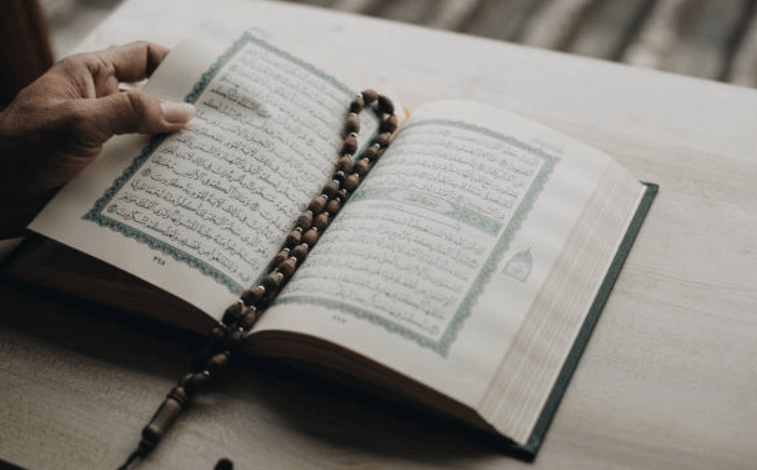The Role of Arabic in the Islamic World and Beyond

Arabic is not only a language spoken by over 420 million people globally, but it also holds profound religious, cultural, and historical significance, particularly within the Islamic world. Its role extends far beyond being a means of communication—it is a cornerstone of Islamic identity, theology, and tradition. The influence of Arabic reaches across centuries of Islamic civilization, shaping everything from religious practices to scientific advancements. This article will explore the multifaceted role of Arabic in the Islamic world and its impact beyond, particularly in terms of religion, culture, and global influence.
Arabic as the Language of the Quran
The most significant and enduring role of Arabic in the Islamic world is its connection to the Quran, the holy book of Islam. The Quran is considered the literal word of God, revealed to the Prophet Muhammad over a period of 23 years. It is written in Classical Arabic, which remains unchanged for over 1,400 years. The Quranic language is revered by Muslims worldwide, not only for its spiritual and theological importance but also for its linguistic beauty and complexity.
For Muslims, learning to read and understand the Quran is a central religious activity, and Arabic is the key to unlocking its message. Although translations of the Quran exist in numerous languages, Arabic is seen as the most accurate form of the divine text. To fully appreciate the depth and nuances of the Quran, many Muslims choose to undertake a Quranic Arabic course to understand the classical language in which it was revealed. Such courses focus on the specific language used in the Quran, allowing students to grasp the intended meanings, metaphors, and themes in their original context. This deep engagement with Arabic allows for a better understanding of Islamic theology, ethics, and law.
See also: What role does technology play in education reform in the USA?
Arabic in Islamic Worship and Practices
Arabic also plays a pivotal role in Islamic worship. Every Muslim, regardless of their native language, recites prayers in Arabic. The daily ritual of Salah (prayer) involves the recitation of specific verses from the Quran, such as Surah Al-Fatiha, in Arabic. These prayers are an essential part of a Muslim’s life, performed five times a day as a connection to God.
For Muslims, learning Arabic for worship is an important goal. Even if individuals are not fluent in Arabic, they often learn the phonetic recitations to ensure they can participate in prayers. This has led to a global effort to make Arabic learning accessible to Muslims through schools, online platforms, and Quranic Arabic courses. These courses, in particular, focus on the precise pronunciation and understanding of Quranic verses, ensuring that the recitations are accurate and meaningful.
Arabic in Islamic Scholarship and Science
Arabic has historically been the language of scholarship in the Islamic world, particularly during the Golden Age of Islam (8th to 14th century). During this period, scholars in the Islamic empire made groundbreaking advancements in fields such as medicine, astronomy, mathematics, philosophy, and literature. The vast majority of these intellectual contributions were documented in Arabic.
For example, the famous Islamic philosopher Avicenna (Ibn Sina) wrote his medical encyclopedia, The Canon of Medicine, in Arabic, which became a standard text in both the Islamic world and Europe for centuries. Similarly, notable figures such as Al-Khwarizmi, who is considered the father of algebra, wrote their works in Arabic. This period also saw the translation of Greek and Roman texts into Arabic, preserving much of Western philosophy and science during the Middle Ages.
Even today, Arabic continues to be an essential language in the fields of Islamic studies and historical scholarship. Many ancient manuscripts and texts are written in Arabic, making the language crucial for scholars researching Islamic history and culture. Arabic remains the language of academic discourse in numerous Islamic institutions, ensuring that the intellectual legacy of the Islamic Golden Age is preserved.
Arabic’s Cultural Impact
Beyond its religious and scholarly significance, Arabic has deeply influenced global culture. The Arabic language and its literary tradition have contributed greatly to world literature, with works such as One Thousand and One Nights (also known as Arabian Nights) influencing Western storytelling. Arabic poetry, with its complex meter, rhythm, and imagery, has also had a lasting impact on global literary traditions.
Additionally, Arabic has significantly influenced other languages, particularly those in the regions where Islam spread. For instance, many words of Arabic origin have been incorporated into languages like Spanish, Portuguese, Turkish, and Persian due to the spread of Islam and Arab culture through trade and conquest. In Spanish, for example, words like “aceituna” (olive) and “alcalde” (mayor) are derived from Arabic.
In the modern world, Arabic music and art continue to be a major influence, with the calligraphy of Arabic script being recognized worldwide for its artistic value. The intricate designs of Arabic calligraphy often carry deep spiritual and cultural meanings, making it one of the most celebrated forms of Islamic art.
Arabic as a Bridge in the Global Islamic Community
Arabic serves as a unifying force within the global Muslim community, or Ummah. No matter where Muslims are located in the world—whether in Indonesia, Saudi Arabia, or the United States—Arabic functions as a common linguistic thread. This shared language enables Muslims to communicate, worship, and understand their religious texts in a uniform way, fostering a sense of unity despite geographical, cultural, and ethnic differences.
For Muslims, learning Arabic is not just about communication—it’s about understanding their religious identity. As a result, there is a growing movement within the Muslim community to learn Arabic, particularly for those living in non-Arabic speaking countries. Many Muslim communities offer language classes, and students increasingly turn to online platforms, where they can find Quranic Arabic courses or general Arabic language programs, to facilitate their learning.
The Role of Arabic in Today’s Globalized World
In the context of globalization, Arabic is also gaining importance outside of strictly religious or academic settings. As the Middle East and North Africa (MENA) region continues to play a significant role in global politics, economics, and culture, Arabic is becoming a crucial language for diplomats, business professionals, and international organizations. The ability to speak Arabic can open doors to opportunities in international relations, trade, journalism, and more.
Furthermore, with the increasing popularity of Middle Eastern and North African cinema, literature, and media, Arabic has become a language of interest for many people outside the Muslim world. From learning Arabic to gaining insights into the cultures of the MENA region, more individuals are recognizing the value of the language in a globalized world.
Summary
Arabic holds a unique and powerful role within the Islamic world and beyond. It is the language of the Quran and worship, the medium through which centuries of Islamic scholarship were communicated, and a cultural bridge that unites people across different nations. Whether it’s through learning Quranic Arabic to deepen one’s understanding of Islamic texts or exploring the broader cultural and historical context of the language, Arabic remains a key element in connecting the global Muslim community and enriching the world’s intellectual and cultural heritage. As Arabic continues to shape global dynamics, its influence only grows stronger, making it an essential language to understand in the 21st century.



